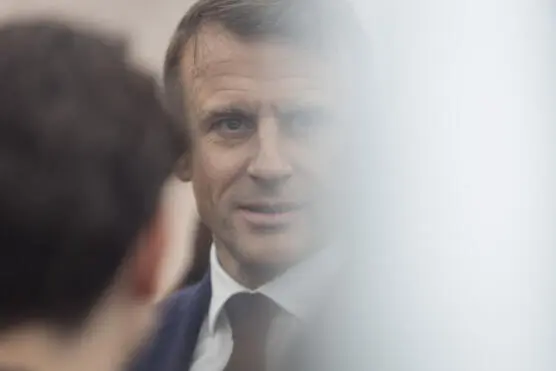In the midst of escalating political turbulence, President Emmanuel Macron finds himself battling a wave of public discontent and internal strife within his own party as France braces for crucial parliamentary elections.
Over the weekend, Macron, secluded in the Lanterne residence in Versailles, grappled with the stark reality of widespread rejection. Reports from close associates paint a picture of a leader feeling confined, akin to “a lion in a cage,” as criticism mounts outside the gates of his retreat.
The decision to dissolve the Assemblée Nationale, a move perceived by many as drastic and poorly timed, has exacerbated tensions within Macron’s Renaissance party.
Former allies, including Patrick Vignal, have not minced words in expressing their disillusionment. “People hate you,” Vignal bluntly remarked during a recent exchange with the president, reflecting a sentiment echoed by a growing chorus within political circles.
In an effort to sway public opinion and justify his controversial actions, Macron took to a podcast hosted by “Génération Do it Yourself,” where he defended his policies at length, rebuking his opponents on both the far-right and left as architects of potential “civil war.”
However, critics argue that Macron’s rhetoric may be falling on deaf ears, further isolating him from voters weary of political brinksmanship.
Despite initially pledging to cede the spotlight to Prime Minister Gabriel Attal for the upcoming legislative campaign, Macron has remained prominently vocal, intensifying his public appearances amid a backdrop of party dissent.
The president’s decision-making has drawn ire from within his own ranks, with MPs from Renaissance and allied parties expressing dismay over what they perceive as a lack of consultation and empathy.
The prospect of an electoral upheaval looms large for Macron’s camp, with predictions of significant losses in the parliamentary elections. However, Macron appears undeterred, urging his supporters to prepare for a formidable electoral battle ahead.
In an attempt to mend fractured relationships and placate disgruntled allies, Macron penned a “Letter to the French,” distributed through regional press outlets, extending gestures of friendship and respect to his beleaguered supporters.
The move, intended to assuage mounting fury within his party, underscores Macron’s recognition of the rifts that threaten to undermine his leadership.
As the nation braces for a pivotal electoral test on June 30 and July 7, Macron faces a daunting challenge in convincing voters of his vision amidst widespread disillusionment and internal discord.
His ability to navigate these turbulent waters may well determine the political landscape of France for years to come.
In this critical juncture of French politics, Macron’s future hangs in the balance, poised between the fervor of his critics and the loyalty of his supporters, all against the backdrop of a nation grappling with profound political uncertainties.
This article was created using automation technology and was thoroughly edited and fact-checked by one of our editorial staff members



